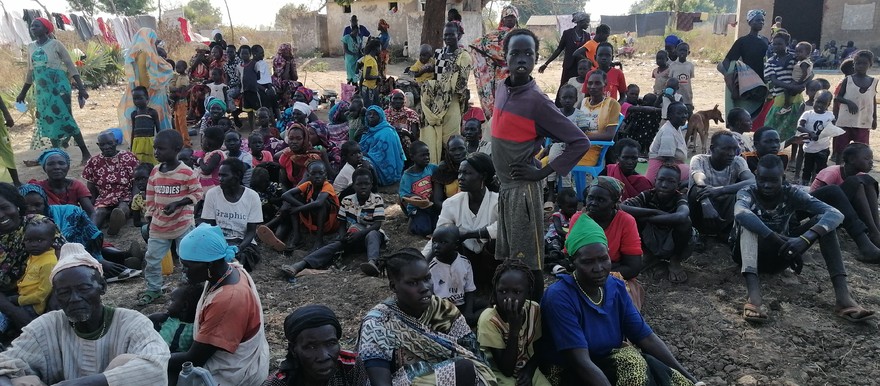Several people who returned from refugee camps in neighboring Uganda to Central Equatoria State’s Kajo-Keji County have called upon the government to improve and stabilize security to inspire more refugees to return.
There has been a rise in the number of voluntary returnees from the neighboring countries, especially Uganda, which borders Kajo-Keji County, due to a reduction of food rations in refugee camps.
Speaking to Radio Tamazuj over the weekend, Rose Kiden, who just returned from Morobi Refugee Camp in Uganda’s West Nile Region, said stable security will encourage refugees to come back home.
“I only want the government to stabilize security in the county so that those brothers and sisters left behind can get the courage to come back home without fear,” she said. “This is the only thing I am asking the government to act upon because many people will return willingly from the refugee camps.”
Janet Kiden, who returned from Uganda’s Moyo District with her husband, said the reduction of food rations in the refugee camps is forcing most people to return home. She urged the government to support the returnees with farm tools and seeds to produce food so that they can help their children who are still attending school in the refugee camp.
“The food ratio is not like before, and everything has reduced; that is why we have decided to come to the village to farm so that we can sell some produce and send money and food for our children in the camp who are in school,” she explained. “We want the government to support us with farm tools and seeds. I urge the people in the camps to return home, as we have sufficient land to cultivate and support our families within the camp. After all, if you stay back there without support, it will be very difficult to survive.”
For his part, Joseph Wori, another returnee, said he came back because it was becoming difficult to survive in the camp, yet the security situation has improved at home, and one can farm.
“Our children and wives are the ones we left in the camp due to education, because there are good schools here in Kajo-Keji, yet. When we cultivate and harvest our produce, we can send some because they lack sufficient food,” he enlightened. “I decided to return home after food rations were reduced, and I am happy because since I came, nothing bad has happened. I want to thank our government for stabilizing the security situation.”
According to Moses Pijakajo, the coordinator of the Relief and Rehabilitation Commission (RRC) in Kajo-Keji County, his office has registered 2,500 households (6,800 individuals) who returned from the refugee camps voluntarily.
“I have been receiving returnees daily, and from January to date. Although there are a lot of challenges in the county, returnees continue to come,” he recounted. “Those who came said the food rations have been completely cut off, and they have no land to cultivate, and that there is no support from humanitarian agencies. So, they decided to come back and dig the land that is abundant in the county.”
Meanwhile, Kajo-Keji County Commissioner Wani Jackson Mule encouraged the returnees to start cultivating in their home areas since there is improved security.
“We encourage that, let them go back to their original areas and start farming because they are our local people who went to the camps because of the previous security situation in the county. The local chiefs should know who has come back and provide them security,” he said. “My message is that refugees should come back and do their usual activities since there is good security in the area now and the war is over.”
According to Commission Wani, the people who fled to refugee camps were not targets but victims of war.




